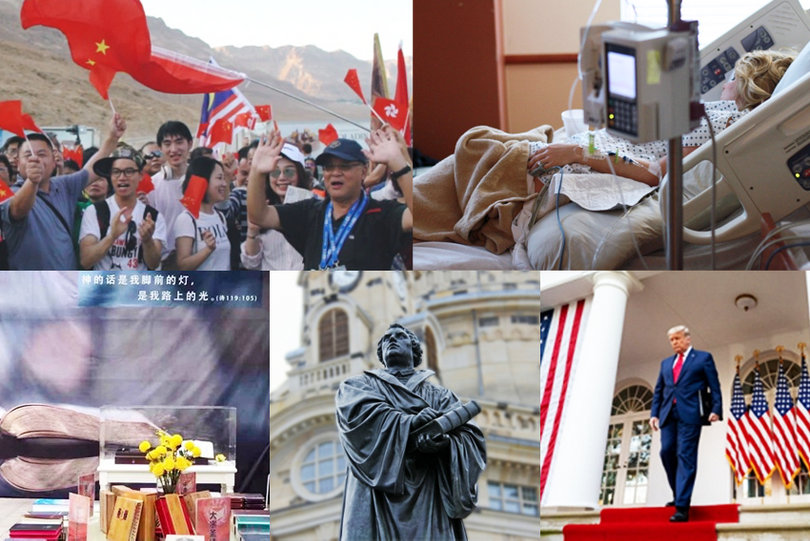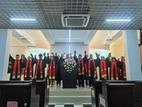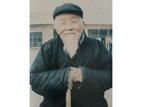The year 2020 is destined to be a key year in history, marking the beginning of a new era. The COVID-19 pandemic has been the largest headline throughout this past year. The word “pandemic” was chosen as the word of the year, according to Merriam-Webster and Dictionary.com.
With a disastrous impact across the globe, the international pandemic came 671 years after the Black Death that occurred in 1349. Due to the pandemic, all registered churches in China and many house churches were shut down in late January. The churches launched intercessory prayers, mostly for repentance.
In the following two months, churches across China were forced to gather online, while donating money and material to affected areas. As the country entered into the phase of containing the virus on an ongoing basis at the end of May, churches gradually reopened. Meanwhile, the cross-removal campaign continued in some provinces. As online gathering became the “new normal,” Chinese Christians were active in attending various kinds of conferences, forums, and retreats at home and abroad.
In November, the US presidential election accelerated the divisions among Chinese Christians. There were discussions and arguments on whether we should support President Donald Trump or Democratic candidate Joe Biden. First established in the early 1990s, the Chinese Church Bible Day was restarted in mid-December, showing the importance of the Bible from the Chinese perspective.
As we embrace 2021, the editorial team of China Christian Daily has selected the top 10 Christian news stories of 2020 based on the number of views, keyword searches, shares, and prominence of articles.
Below is part 2, Nos. 6-10 of CCD'S top 10 news stories of 2020. Part 1, which can be read here, includes Nos. 5-1.
6. Chinese Christians were active in international conferences.
Virtual international conferences thrived as people were forced to stay home. Starting from late August, the twelfth Internet Mission Forum was held online for four Friday evenings, focusing on the church and evangelism in the post-pandemic era. In 2009, the late Rev. Wang (Thomas) Yongxin initiated the forum, which is held in August and September in the United States or Canada to promote missions on the Internet and new media.
Held on October 1-6, the Global Convention on Christian Faith & World Evangelization was conducted virtually in Jakarta, Indonesia. Initiated by the Reformed Evangelical Movement International and Stephen Tong Evangelistic Ministries International, which was founded by the Indonesian Chinese pastor Stephen Tong, the convention attracted many Christians in mainland China. More than 32,800 people from 85 countries attended the convention. There were 30 renowned speakers who preached in English, Indonesian, or Chinese, including Tim Keller, John Piper, DA Carson, Os Guinness, and Dr. Richard L. Pratt, Jr.
In early October, some hundred Chinese Christians joined in a virtual Feast of Tabernacles sponsored by the International Christian Embassy in Jerusalem, Israel. The seven-day conference featured “Prepare the Way,” including live worship services, more than 80 seminars and virtual tours of sites in the holy land. The conference attracted more than 7,200 people worldwide, according to the event’s official website.
With a history of 35 years on site, the China Mission Convention (CMC) Global 2020 went virtual in late September due to COVID-19. Organized by Ambassadors for Christ, an American Chinese Christian Ministry, the event that aims to equip Chinese believers and churches with discipleship training is sponsored by the Chinese Bible Church of San Diego and other Chinese American churches. The keyword of the convention was "Rethink the Gospel", with a message concerning Christ, the kingdom of God, and salvation.
Founded by Zhao Xiao, a Chinese Christian economist, the Cypress Leadership Institute launched a forum on December 30, featuring “Rebuilding Walls: Battle and Watch at the Crossroad”(Nehemiah 2:17). Dedicated to offer Christ-based leadership training, education, and counseling, lectures were given on the relationship between state and church in China in 2020, historical challenges and the calling of “wall reconstruction,” and reflections on the rule of law in China through personal experiences.
7. Christian social care during the pandemic
Despite the helplessness and medical resources that became paralyzed at times due to the virus, churches across the country donated money, facial masks, and other material to the affected areas at home and abroad. An aid campaign launched by "Beijing Pastoral Prayer" donated supplies worth 100,000 yuan to Iran. Hubei Christian Council & Three-Self Patriotic Movement said in late February that all the funds donated by churches amounted to more than 10 million yuan. The Jilin CC&TSPM donated funds to three nursing homes and poor farmer families. A Changsha church sent vegetables to a welfare home which was quarantined but in desperate need of food supplies amidst the coronavirus outbreak.
Visitation ministries served non-Christians more than ever. Shang’ai Public Welfare Service Center of Kunshan paid visits to mentally disabled people. Volunteers visited severely sick patients with food, prayers, and love. A church in Shenmu City, China's western Shaanxi Province organized a visit to a local nursing home.
8. The Chinese Church Bible Day
In the early 1990s, the second Sunday (including Saturday) in December was designated as the Bible Day in the Chinese Church to inspire more Bible reading. CCC&TSPM held a series of activities in Guangdong to mark the day on December 12 and 13. According to Guangzhou CC&TSPM, videos of reading Psalm 23 in dialects such as Cantonese, Southern Min, Lisu language, and Hakka were released on official WeChat accounts. A symposium was conducted by using both live and video presentations, featuring “Reading the Bible from the Perspective of Chinese people.”
9. The first-ever symposium on the translation of the works of Martin Luther into Chinese was held in Shanghai.
The first-ever symposium on the translation of the works of Martin Luther was held virtually on December 16, with the theme of “Quest for the Missing Martin Luther in Intellectual History.”
Paulos Huang, the director of the Sino-European Center of Shanghai University, stated the necessity of translating the works of Martin Luther into Chinese. In charge of the translation of the studies of the great Reformer into Chinese, he introduced what Finnish Luther studies had achieved. Huang, who has translated the works of Tuomo Mannermaa into Chinese, expected the translation of Luther’s books to become a landmark like the introduction of Western learning into China during the May Fourth Movement.
Yuan Chaohui, associate professor of the Institute of World Religions of the Chinese Academy of Social Sciences, claimed that the lack of the translation of Luther’s original texts into Chinese led to Chinese scholars’ understanding of bias in church and state relations, modern western society, thought, and history.
10. The 2020 United States presidential election intensified division within the Chinese Christian community.
November 3, 2020 was election day in the US, but the "Black Swan" incident reappeared. According to Trump's later statement, he did not expect the day to be an election week and month. Even by the end of 2020, it has not yet been finalized whether Trump or Biden won the election.
With the chaotic state of the general election, the great division of American society once again became a highlight, including within the Christian community. Evangelical Christians had different attitudes toward Trump. One side thought that Trump was fighting for conservative Christian values while the other side believed that it was a shame for Christians to support Trump, whose personal morality was incompatible with Christian values. However, the Chinese Christian community in the United States presented a more divided attitude on this topic.
Vote for Trump or Biden? Vote or just focus on the Lord Jesus? These have become the focus of debate in the Christian community. John Piper, an evangelist, published an article "Policies, Persons, and Paths to Ruin: Pondering the Implications of the 2020 Election", which stated his belief that supporting any candidate in this presidential election was wrong and would damage a Christian’s testimony. As the article aroused an enormous response, Wayne A. Grudem, a famous evangelical theologian, expressed a different view in his article "A Respectful Response to My Friend John Piper about Voting for Trump". Similar phenomena also occurred among Chinese Christian groups in the States.
The Christian community in China have also participated deeply in the debates of the current election and on relevant hot topics, which aggravated further divisions of views and attitudes among themselves. Many celebrities and famous pastors expressed their support and position. Many lay Christians posted a large number of comments and information supporting their views on their WeChat moments. Their debate and argument on this topic could also be found on Christian social media and WeChat groups.
Meanwhile, compared with the zealous debate online, most grassroots pastors and Christians did not know or care about this matter. On the one hand, it was because they were deeply influenced by the dualism of "secular vs spiritual" rooted profoundly in the Chinese Church and they keep a certain distance from political affairs. It also had something to do with the geographical and psychological distance with American elections.
Karen Luo and Ruth Wang contributed to these reports












